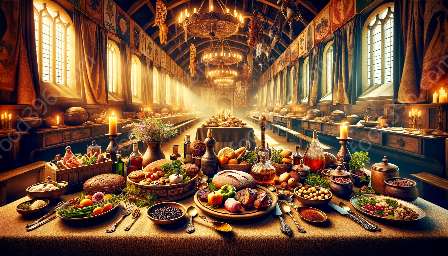Medieval cooking was shaped by the utilization of spices and exotic ingredients. These elements were fundamental in enhancing flavors, preserving food, and demonstrating wealth and power. The history of cuisine is closely intertwined with the trade routes, cultural exchange, and impact of these coveted commodities. To understand the medieval cuisine history, it is essential to recognize the significance of spices and exotic ingredients.
The Significance of Spices and Exotic Ingredients
In medieval Europe, spices and exotic ingredients played a crucial role in cooking. The availability of these commodities was a sign of affluence, and their use was considered an art form. Spices such as cinnamon, cloves, nutmeg, and pepper were highly sought after and used in both sweet and savory dishes. Exotic ingredients like saffron, cardamom, and ginger added depth and complexity to various recipes. Their use represented an opportunity for cooks to showcase their skills and create enticing flavors.
Trade Routes and Cultural Exchange
The demand for spices and exotic ingredients led to intricate trade routes that connected Europe with the Middle East, Asia, and Africa. The Silk Road, Spice Route, and other trading networks were essential in bringing these coveted goods to the tables of medieval nobility and merchants. Along with the exchange of goods, cultural interactions occurred, influencing cooking techniques, flavor combinations, and culinary traditions.
The Impact on Culinary Evolution
The introduction of spices and exotic ingredients had a lasting impact on the evolution of cuisine. It revolutionized cooking methods, food preservation, and flavor profiles. As these commodities became more accessible, they became integral to the creation of unique regional dishes and contributed to the fusion of culinary styles. The influence of spices and exotic ingredients can be traced through the development of traditional dishes that have stood the test of time.
In Conclusion
The role of spices and exotic ingredients in medieval cooking was pivotal. It not only shaped the flavors and aromas of dishes but also influenced the history of cuisine. Understanding the significance, trade routes, and impact on cultural and culinary evolution provides a deeper appreciation for the rich tapestry of medieval culinary traditions.

